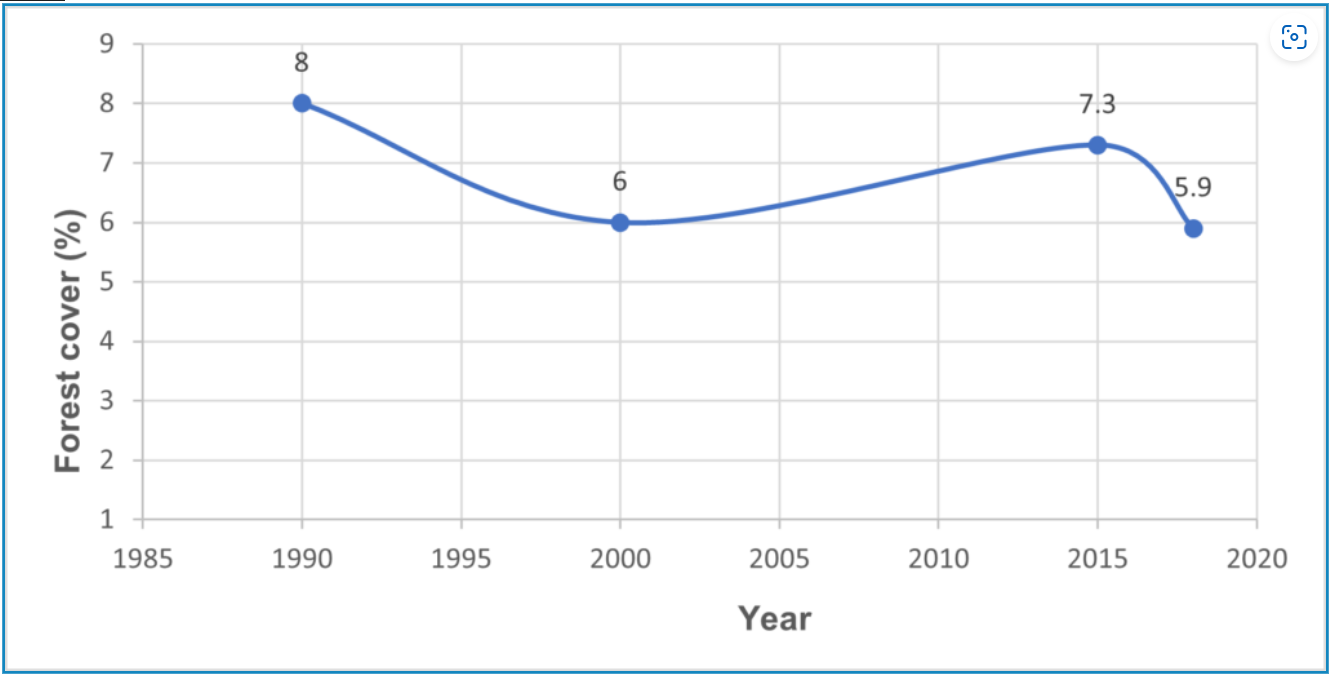
Community policing is anchored on the premise that partnership between policing agencies and the communities they operate in is crucial in turning the tide against crime. Available reports indicate that policing agencies require support from local communities to prevent and/or reduce crime.
This, therefore, calls for improved relationships between policing agencies and local communities as highlighted in the 2009 Report of the National Task Force on Police Reforms in Kenya. In the Kenya Police Service Strategic Plan 2003-2007, “Promotion of collaborative partnerships between the communities, local authorities and the Police Service” is highlighted as one of the strategies in crime prevention. Also, the Revised Police Reforms Programme 2015-2018 lays emphasis on the need to strengthen the practice of community policing and Usalama Msingi initiative as a crime deterrent measure.
Community policing is an approach, which is in tandem with the increasing approach of public participation in governance where citizen-centered approaches are encouraged. This thinking is the opposite of some policing agencies who view management of security from a state-centered approach which pays little attention to human security and focuses on state security, which is extremely narrow and fails to appreciate the contribution citizens play as partners in managing security.
Previously, both state and non-state actors have partnered to encourage community policing initiatives. As such, community policing is not a new model to security since most communities practice the principle of being each other’s keeper through traditional customary practices. Even though not written down, most rural communities practice the concept of community policing due to a shared cultural identity. In the urban setup, successful cases of community policing have been carried out in several areas. In Nairobi, for example, there have been fairly successful community policing initiatives in Ruai and Kasarani sub-counties where community policing programme was valued by the community for having reduced crime and provided a forum to discuss local security issues which had not previously been available.
The 2007-2008 post-election violence in Kenya increased calls for the National Police Service to deliberately undertake reforms geared towards improving their relationship with the communities they operate in. A National Task Force established to investigate the violence recommended that policing agencies embrace community policing as one of the strategies in crime prevention. The constitution promulgated in August 2010 further empowers citizens to play a role in the management of security. The National Police Service Act 2011 provides for community policing by establishing Community Policing Committees as one mechanism for operationalizing community policing.
Since the post-election violence of 2007/2008, the National Police Service has embraced community policing, which is more than a crime prevention strategy since it is proactive and participatory. The National Police Service Act has flagged community policing as one of the strategies towards improving public service delivery by policing agencies due to the increasing appreciation of the role local communities can play in enhancing security.
Currently, community policing is practiced under the Nyumba Kumi security initiative. The initiative has anchored community policing at the household level with the aim of achieving safe and sustainable neighbourhoods because police alone cannot solve the problems of crime Kenya.
Differences between traditional policing and community policing
| Traditional Policing | Community Policing |
| Police-centered | Citizen-centered |
| Crime-centered | Security-driven |
| Reactive | Proactive |
| Policing work of security agencies | Community police partnerships |
| Enforcement/arrests and punishment primary tool | Problem solving jointly with local communities |
| Crime reduction | Focuses on crime prevention |
| Relies on informers | Relies on citizen participation |
However, implementation of community policing strategy has faced some obstacles, namely:
Weak service-oriented culture and attitude in policing: For community policing to succeed in Kenya, there is need to build trust between policing agencies and local communities. Various studies and reports have documented that interactions between policing agencies and communities have been repressive and punitive. This has made local communities to loathe any encounter with officers from policing agencies. Currently, even though the National Police Service has professional officers drawn from forensics, laboratory technicians, pilots and pharmacists, the recruitment of police officers at the rank of Constable in Kenya majorly emphasizes on physical fitness of recruits. The current recruitment policy of Officer Cadets in the Service does not mention the intellectual and social competence of police recruits, which is paramount for the success of community policing because it calls for innovative ways of interacting with local communities. In addition, policing agencies have been slow to address the association of some of their officers with human rights violations, which alienates members of the Service from communities where they provide security. A weak service-oriented culture and attitude to policing has denied policing agencies the anchor for successful cooperation with citizens in addressing security challenges. This is because some police officers perceive civilians as being incapable of contributing to security and therefore not accountable to communities where they work.
The current approach to crime prevention focuses more on rudimentary traditional methods such as enforcement, arrests, “operations” as a way of tackling security challenges. Also policing agencies rely more on arrests, prosecutions and convictions as opposed to prevention. The annual police crime reports rarely touch on crime prevention which local communities have a bigger role to play if there is a proper framework of partnership between policing agencies and civilians.
Misconception about community policing: Some communities are yet to embrace community policing. Some have misconceived it to mean formation of vigilantes and local militias to provide security. Even though policing agencies expect communities to be crime spotters and report to the policing agencies immediately, some communities regard it as a leeway to organize vigilantes, militias to engage in illegal patrols, arrests and mete out punishment/mob injustice on suspects especially in informal settlement areas in urban communities. However, other informed citizens regard it as a framework for engaging policing agencies to develop strategies for reducing and/or preventing crime. There is also a misconception between the respective policing agencies, some who misunderstand community policing as a framework to eavesdrop on activities being done by citizens, gather information without any form of accountability. Some community members have tended to regard community policing to mean spying on others within the community. Rather, it entails sharing information for the welfare and security of the entire community.
Inadequate institutional capacity for community policing: The current policing agencies’ framework is yet to start supporting the concept of community policing. It is not clear if policing agencies have a budget item in their annual budgetary allocations to support community policing initiatives because, apparently, most budgetary allocations in policing agencies is geared towards normal regular policing operations. The few community policing initiatives that had been operationalized in some parts of Nairobi were being funded by donors. For instance, the security project of police booths at strategic points initiated by the Nairobi Central Business District Association (NCBDA) collapsed after the association pulled out due to infighting within the organization.
Even though the police training curriculum and Standing Service Orders have identified community policing as a crime prevention strategy, there are no incentives for policing agencies to prioritize it in public service delivery. There are also no appraisals done on senior commanders to establish whether they have embraced community policing in their areas of jurisdiction in crime prevention. This has made it difficult for policing agencies to own community policing as a crime prevention initiative; rather they see it as alien, as opposed to it being driven from within the policing agencies. The National Police Service ought to incentivize its officers to embrace community policing as a strategy that will not only make their work easy but also build the much-needed trust between policing agencies and citizens.
Case Study: Community Policing in Tanzania
Tanzania has embraced community policing (Polisi Jamii) as a shared responsibility between policing agencies and citizens. In 2006, Tanzania police landmarked a special reform that aimed at building trust between policing agencies and members of communities where officers operate in. One of the important steps taken was the releasing (to community members where officers operate) of private telephone numbers of senior police officers to facilitate contact between members of community and police officers.
Tanzania police are required to ensure that their policing services have the input and participation of citizens in areas they operate in. The wholistic philosophy is under the rallying call of Ulinzi Shirikishi (cooperative security management), a communal security framework led by local communities but supported by policing agencies. Community policing has succeeded in Tanzania due to their historical roots in Ujamaa (socialism) where each member of the community regards the other as a brother/sister in need of their care and/or concern.
Local communities are required to have community meetings and elect their security committees who act as contact persons between the community and policing agencies. These local security committees are first responders in case of not only crime, but also emergencies such as floods, fires and other security challenges. These first responders (local security committees) are normally trained by the Tanzania security officers on basic security skills required in handling emergencies.
After being trained, the security committees are tasked with developing local innovative crime prevention strategies which are then submitted to the police for approval. These local security committees are then the pillars upon which participatory security (Ulinzi Shirikishi) is anchored on. Thus, in Tanzania, community policing is regarded as democracy in action where citizens are in the driver’s seat guided by security agencies. The “community” is thus part of the “eyes and ears” of the policing agencies, and merely assists in their crime control efforts.

Way Forward
The success and sustainability of community policing in Kenya will to a larger extent depend on improved policy environment, skilled, knowledgeable and motivated policing agencies, deliberate funding of community policing programmes, and support with modern equipment and technology.
Police officers ought to regard community members as partners in preventing crime. Security agencies and officer’s ought to recognize that they are not the only custodians of communal and national security, but rather local communities too have a stake in it. This requires re-orientation of mindsets and attitudes of policing agencies.
On the other hand, policing agencies ought to carry out civic education within local communities to clarify on the concept of community policing. This will make community policing to be owned by citizens and remove misconceptions that still exists among the citizenry. This will distinguish between vigilantism and community policing.
It is paramount that policing agencies make it mandatory for their officers to deliberately go out of their way to partner with local communities in preventing crime. Partnerships help to facilitate trust between community members and the police. Citizens are able to provide the police with insights into the specific crime problems occurring within their neighbourhoods and can aid officers in intelligence collection and investigations.
The ten-household security cluster initiative (Nyumba Kumi) in Kenya ought to introduce partnerships and problem-solving approaches aimed at improving the relations between security agencies and the communities, subsequently improving the quality of police services, building trust, and preventing and/or reducing crime levels.
The National Police Service Commission on its part should make efforts to address gaps in the 2015 Regulations on Recruitment, Transfers and Promotions and focus more on inter-personal skills, problem-solving, conflict resolution and intellectual maturity if community policing is to gain foothold in policing agencies to address the changing security dynamics.
Author: Dr Douglas L. Kivoi, Principal Policy Analyst, Governance Department





